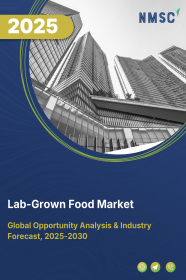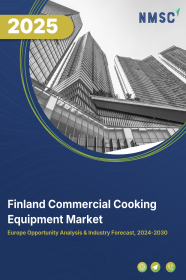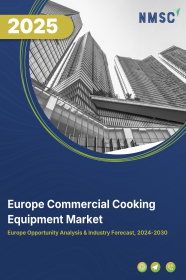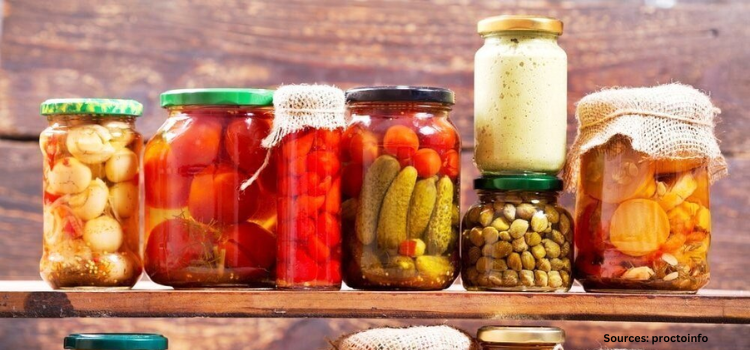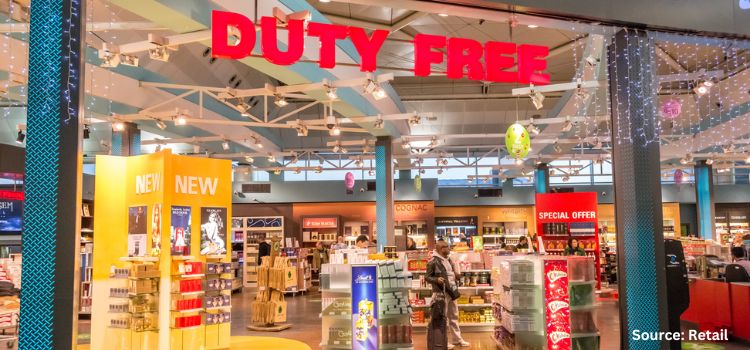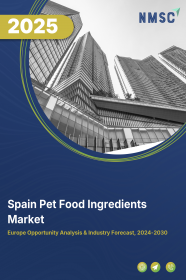
Spain Pet Food Ingredients Market by Type (Non-Vegan, Vegan, and Novel Proteins), by Nature (Organic and Inorganic), by Form (Dry and Wet), by Pet Type (Dog, Cat, and Others), and by Distribution Channel (Online and Offline) – Opportunity Analysis and Industry Forecast, 2024–2030
Industry: Retail and Consumer | Publish Date: 27-Jan-2025 | No of Pages: 117 | No. of Tables: 85 | No. of Figures: 50 | Format: PDF | Report Code : RC2829
US Tariff Impact on Spain Pet Food Ingredients Market
Trump Tariffs Are Reshaping Global Business
Spain Pet Food Ingredients Market Overview
The Spain Pet Food Ingredients Market size was valued at USD 1.15 billion in 2023, and is predicted to reach USD 3.05 billion by 2030, at a CAGR of 14.3% from 2024 to 2030. In terms of volume the market size was 221.20 kilotons in 2023 and is projected to reach 473.21 kilotons in 2030, with a CAGR of 10.9% from 2024 to 2030.
The pet food ingredients industry refers to the production and distribution of essential raw materials used in the creation of pet food. These ingredients, obtained from both plant and animal sources, provide the necessary nutrients including proteins, carbohydrates, fats, vitamins, and minerals to meet the dietary needs of various animal species.
Through processes such as grinding and blending, these ingredients are transformed to enhance flavour and nutritional value. They use high-quality components and supports pet health and growth, offering essential dietary options to meet specific requirements. The companies operating in this sector are committed to sourcing premium ingredients and maintaining transparency in their supply chains. This strategic focus significantly drives market growth as pet owners increasingly seek high-quality food options for their pets.
Rising Pet Population Drives the Spain Pet Food Ingredients Market
The expanding pet population in Spain drives significant growth in the pet food ingredients market as the number of pets increases, the consumer’s interest in their nutritional needs and overall well-being rises. According to the latest report published by the World Population Review, Spain's dog population is estimated to be around 9.31 million.
This rising pet ownership led to surge in demand for high-quality and diverse pet food options, prompting manufacturers to innovate and expand their product offerings. As pet owners become increasingly invested in their pets' health, they seek products that not only provide basic nutrition but also offer functional benefits such as enhanced immunity, improved digestion, and better coat health, thereby propels the growth of the market.
Expansion in Disposable Income Boosts the Growth of the Market
The rising disposable income in Spain is fuels the growth of the pet food ingredients market, enabling pet owners to invest in premium, high-quality pet food that addresses to their pets' nutritional requirements. According to the latest report published by the OECD Better Life Index report, the average household net adjusted disposable income per capita in Spain is projected to reach USD 27,155 in 2024.
This increasing disposable income empowers pet owners to prioritize better nutrition for their pets, driving demand for premium ingredients to meet their pets' specific dietary needs.
Increasing Production Costs Restraints the Pet Food Ingredients Market Growth
The high demand for organic and sustainable ingredients restrains the pet food ingredients market, as it raises production costs. These increased costs affect the affordability of pet food products that slow down the market growth as price-sensitive consumers opt out of premium options. While eco-friendly and health-focused ingredients rise, the rising prices limit broad accessibility and creating challenges to sustaining growth in this sector over the long term.
Adoption of Sustainable Protein Sources Creates Growth Opportunity for the Market
The integration of sustainable protein sources such as egg-derived proteins, tofu byproducts, black soldier flies, and silkworms is anticipated to generate new opportunities in the pet food ingredient market. These alternatives provide high nutritional value and reduced environmental footprint compared to traditional proteins such as beef and pork. Egg proteins and tofu derivatives not only offer essential nutrients but also contribute to minimizing food waste.
Additionally, insect proteins from black soldier flies and silkworms present sustainable and eco-friendly approach to protein production. These choices not only meet the dietary needs of pets but also promote the adoption of organic practices, encouraging the industry toward environmentally responsible production and long-term sustainability.
Competitive Landscape
The several market players operating in the Spain pet food ingredients market include Cargill Incorporated, BASF SE, Archer Daniels Midland Company (ADM), Koninklijke DSM N.V., Kemin Industries Inc., Symrise AG, Darling Ingredients Inc., The Scoular Company, Roquette Freres, Sinova GmbH, and others.
Spain Pet Food Ingredients Market Key Segments
By Type
-
Non-Vegan
-
Beef
-
Chicken
-
Fish
-
Others
-
Vegan
-
Soyabeans
-
Peas
-
Lentils
-
Others
-
Novel Proteins
By Nature
-
Organic
-
Inorganic
By Form
-
Dry
-
Wet
By Pet Type
-
Dog
-
Cat
-
Others
By Distribution Channel
-
Online
-
Offline
Key Players
-
Cargill Incorporated
-
BASF SE
-
Archer Daniels Midland Company (ADM)
-
Koninklijke DSM N.V.
-
Kemin Industries Inc.
-
Symrise AG
-
Darling Ingredients Inc.
-
The Scoular Company
-
Roquette Freres
-
Sinova GmbH
REPORT SCOPE AND SEGMENTATION:
|
Parameters |
Details |
|
Market Size in 2023 |
USD 1.15 Billion |
|
Revenue Forecast in 2030 |
USD 3.05 Billion |
|
Growth Rate |
CAGR of 14.3% from 2024 to 2030 |
|
Market Volume in 2023 |
221.20 Kilotons |
|
Volume Forecast in 2030 |
473.21 Kilotons |
|
Growth Rate (Volume) |
CAGR of 10.9% from 2024 to 2030 |
|
Analysis Period |
2023–2030 |
|
Base Year Considered |
2024 |
|
Forecast Period |
2024–2030 |
|
Market Size Estimation |
Billion (USD) |
|
Growth Factors |
|
|
Companies Profiled |
10 |
|
Market Share |
Available for 10 companies |
|
Customization Scope |
Free customization (equivalent up to 80 working hours of analysts) after purchase. Addition or alteration to country, regional, and segment scope. |
|
Pricing and Purchase Options |
Avail customized purchase options to meet your exact research needs. |

















 Speak to Our Analyst
Speak to Our Analyst



